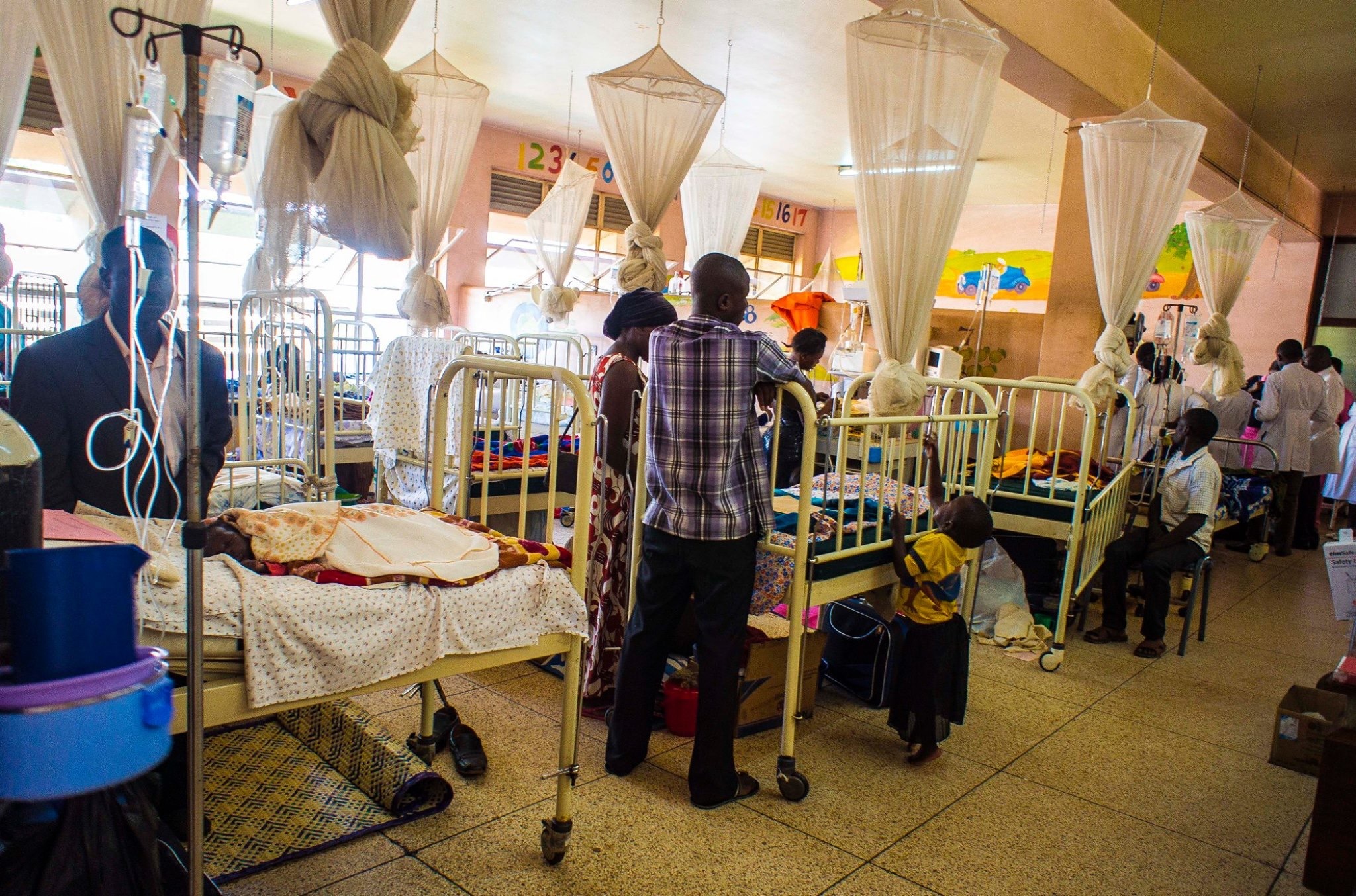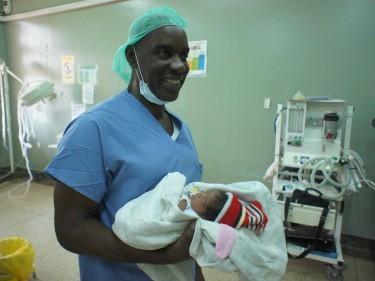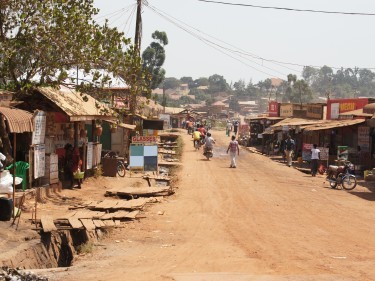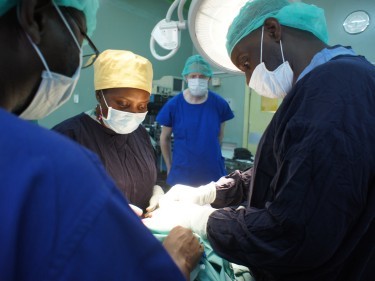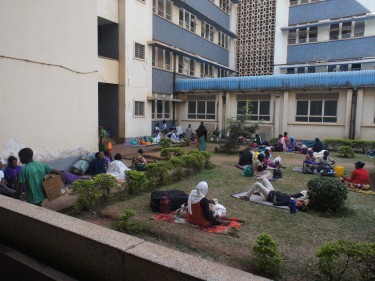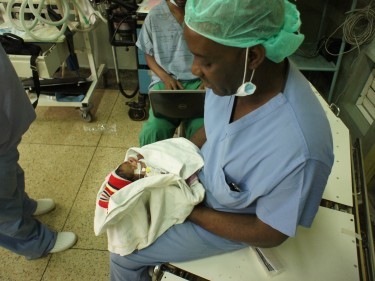For more than ten years, the ARCHIE Foundation has helped save children’s lives at the Royal Aberdeen Children’s Hospital. Now, together with youngsters from the north-east, the charity is looking to help the 100 children born into poverty every day in one of the poorest parts of the world.
At the Mulago Hospital in the Ugandan capital of Kampala, a beautiful baby girl has just been born.
She looks perfect – big brown, innocent eyes and a curly mop of hair, with 10 tiny fingers and 10 toes.
But it soon becomes apparent that she has a condition which only an operation will fix, and one that requires medical attention fast.
Paediatric surgeon Dr John Sekabira desperately needs to use one of the hospital’s five crammed operating theatres to make sure his patient survives.
But being the country’s only national hospital, these are the only theatres Uganda has to serve its 36 million population.
Half of the citizens are under the age of 15 and Mulago has the busiest labour ward in the world.
But there has never been an operating theatre for children – and without help, it’s unlikely there ever will be.
Every day, Dr Sekabira, a highly-skilled surgeon, has a fight on his hands to ensure he gives every child the best possible chance.
“If we had one room designated for children only, it would go a long way to alleviate the burden,” he said.
One man who knows his struggle only too well is north-east surgeon, Professor George Youngson CBE, emeritus professor of paediatric surgery at Royal Aberdeen Children’s Hospital (RACH).
For the past 15 years, he has been visiting East Africa, taking his extensive experience to surgeons in developing countries, training them and testing them.
In 2008, he got to know Dr Sekabira when he helped the surgeon travel over to the UK for three months to develop his skills.
Prof Youngson was impressed by the young surgeon’s ability, but even more so by his deep-rooted commitment to providing the best care for the children in his struggling country, no matter how daunting his task was.
“Dr Sekabira is eminently well trained to provide the care, and the staff around him all want to do it too,” he said.
“But they just don’t have the facilities.”
Last year, Prof Youngson was sponsored by the Royal College of Surgeons of Edinburgh to carry out a training visit across six East African countries.
As part of that, he was asked by Denis Robson, director of African Affairs at Johnson & Johnson, to explore what could be done to support the children’s health service in Uganda.
Prof Youngson said it was obvious what he had to suggest.
“The maternity unit in Mulago is the busiest maternity unit in the world, with between 80 to 100 newborns born in that labour suite every day, which works out at 30,000 deliveries a year,” he said.
“But you have this incredible number of babies being born in a hospital which does not have a children’s surgical theatre.
“Any newborn that needs urgent surgery is already in a queue with adults, and we’re talking about life saving procedures here – not just quality of life procedures.
“Dr Sekabira has got to join the queue for access into a tiny surgical facility, and yet there are vacant operating theatres sitting there, just with no equipment.
“It became quite evident to me that there was a very feasible project that could be established for something that they did not have, but that they desperately needed – a children’s operating theatre.”
As a trustee of the ARCHIE Foundation – the official charity of the RACH – Prof Youngson described his vision to his colleagues.
He told them that for little more than £50,000, an entire children’s surgical theatre could be created at Mulago hospital – the first the country had ever had.
“I cannot begin to stress how little is needed to make such a big difference,” he said.
“In a country of around 20 million children, it beggars belief that it has not been done before.”
The ARCHIE Foundation – a charity skilled in making hospital facilities for children the best they can be – knew it could play its part in changing so many children’s lives.
But with much work still to be done at home, the charity wondered if youngsters in the north-east of Scotland could help them raise the money needed.
Today, it is urging schools and youth groups to take part in ARCHIE in Africa day on March 27 – a never-been-done-before day of fundraising to raise enough money to create the first ever children’s surgical ward at Mulago hospital.
From mid-February, a special website will be go live online, packed with ideas for teachers, parents and guardians of exciting way to raise cash.
Once the funding is in place, the ARCHIE Foundation will travel to Uganda with the equipment in hand to make Prof Youngson’s vision – and Dr Sekabira’s dream – come true.
The walls will be painted bright colours, and young patients will even have toys to play with for the first time.
And every group of youngsters that helps to raise money will have their name etched onto a plaque in pride of place on the ward.
“Throughout Scotland’s long relationship with Africa, we have often worked at a political and government level, but this is different,” said Prof Youngson.
“This is hospital to hospital, and surgeon to surgeon. What we now hope is that this last part of the jigsaw can work from child to child.”
Any school or youth organisation that would like to take part in ARCHIE for Africa should contact Fundraising Manager Emma Slessor on emma@archiefoundation.org.uk
